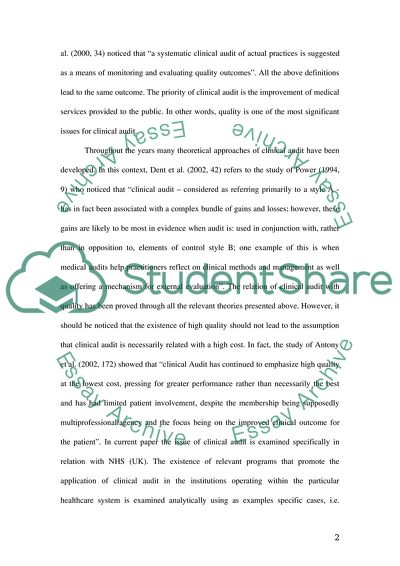Cite this document
(The Professional, Legal and Ethical Perspectives of Clinical Audit Literature review, n.d.)
The Professional, Legal and Ethical Perspectives of Clinical Audit Literature review. https://studentshare.org/health-sciences-medicine/1707809-analyse-clinical-audit-from-a-professional-legal-ethical-perspective
The Professional, Legal and Ethical Perspectives of Clinical Audit Literature review. https://studentshare.org/health-sciences-medicine/1707809-analyse-clinical-audit-from-a-professional-legal-ethical-perspective
(The Professional, Legal and Ethical Perspectives of Clinical Audit Literature Review)
The Professional, Legal and Ethical Perspectives of Clinical Audit Literature Review. https://studentshare.org/health-sciences-medicine/1707809-analyse-clinical-audit-from-a-professional-legal-ethical-perspective.
The Professional, Legal and Ethical Perspectives of Clinical Audit Literature Review. https://studentshare.org/health-sciences-medicine/1707809-analyse-clinical-audit-from-a-professional-legal-ethical-perspective.
“The Professional, Legal and Ethical Perspectives of Clinical Audit Literature Review”. https://studentshare.org/health-sciences-medicine/1707809-analyse-clinical-audit-from-a-professional-legal-ethical-perspective.


